Introduction
Established in 2002, the Consulate of Mexico in Indianapolis represents the government of Mexico to local, state, and federal authorities. This location serves Mexican nationals living in all counties of Indiana except those north of Warren, Tippecanoe, Carroll, Howard, Grant, Blackford, and Jay; all counties in Ohio except those north of Mercer, Auglaize, Hardin, Marion, Knox, Holmes, Tuscarawas, Carroll, and Jefferson; and all counties of Kentucky. It is the only consulate of any foreign government in Indiana.
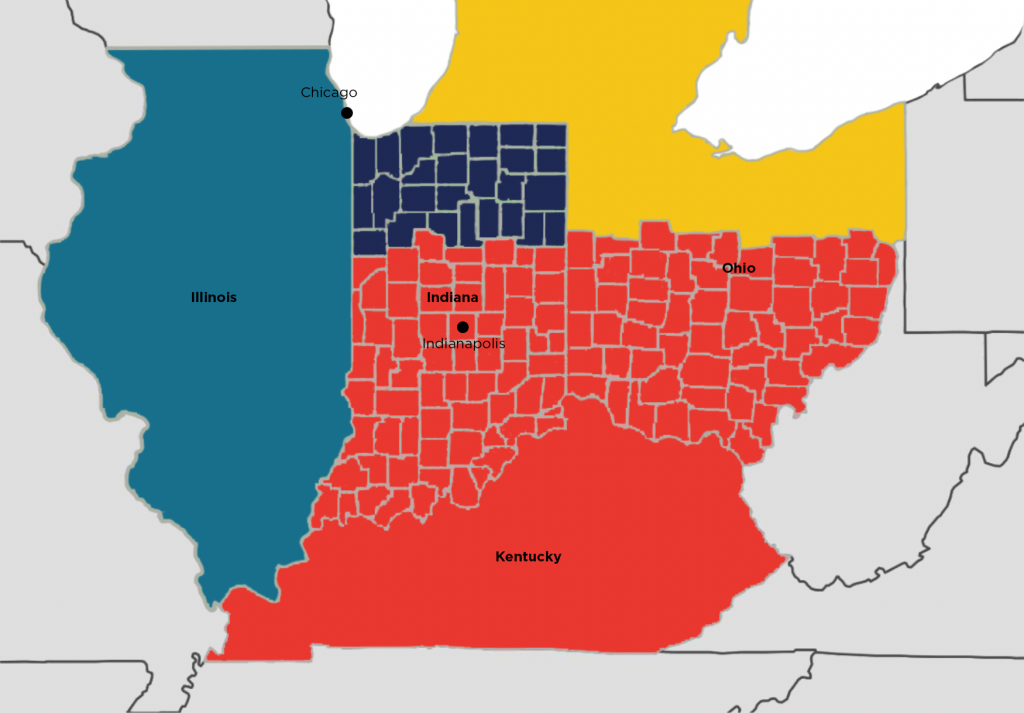
History
The relationship between the governments of Mexico and Indiana predates the current consulate by more than 100 years. A consular office was formed in Indianapolis in 1907 when Mexican President, General Porfirio Diaz, appointed Colonel Russell B. Harrison as honorary vice-consul of Mexico. Russell was the son of the 23rd U.S. president, Benjamin Harrison and great-grandson of former Indiana Territory governor and 9th U.S. president, William Henry Harrison.
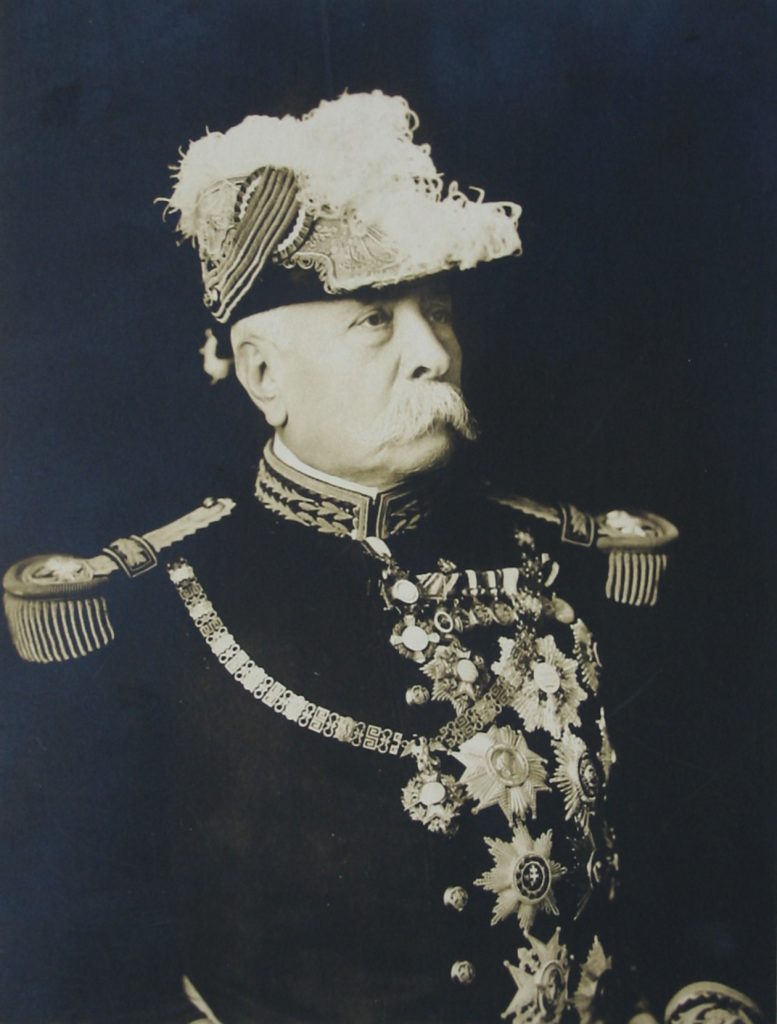
The vice-consul of Mexico’s role was to maintain foreign commercial interests and the protection of citizens of both countries, which included the roughly 44 foreign-born Mexicans living in Indiana. By 1916, there were 100 Mexicans living in Indianapolis. Most owned a business or engaged in other lines of work. Some attended the state’s colleges and universities as well.
Harrison stepped down from his position in 1931. His resignation marked the end of the consular position in Indianapolis until the 21st century.
In 1990, the Hispanic population in Indianapolis was at 7,681 (1.1 percent of the total population) with 4,113 claiming Mexican ancestry. Consulate services for this community were obtained by a consulate field representative from Chicago, hosted out of a mobile office at El Centro Hispano (The Hispanic Center) located at 617 E. North Street.
Between 1990 and 2000, however, the city experienced a 294 percent growth in the Hispanic population, counting 30,636 people or 3.9 percent of the total population, with 21,053 claiming Mexican origins. Where one mobile office visit used to serve about 500 individuals, it now attracted well over 2,000 individuals.
With a clear need for increased services, Governor Frank O’Bannon, Mayor Bart Peterson, and federal authorities, as well as local Mexican leaders, supported the establishment of the Mexican Consulate in Indianapolis. In early 2002, the city of Indianapolis allotted 2,357 square feet of rent-free office space in Union Station as the new consulate’s temporary location. In May 2002, Sergio Aguilera became the consul and leader of Indiana’s first foreign consulate. This location served Mexican nationals living in Indiana, Ohio, and Kentucky.
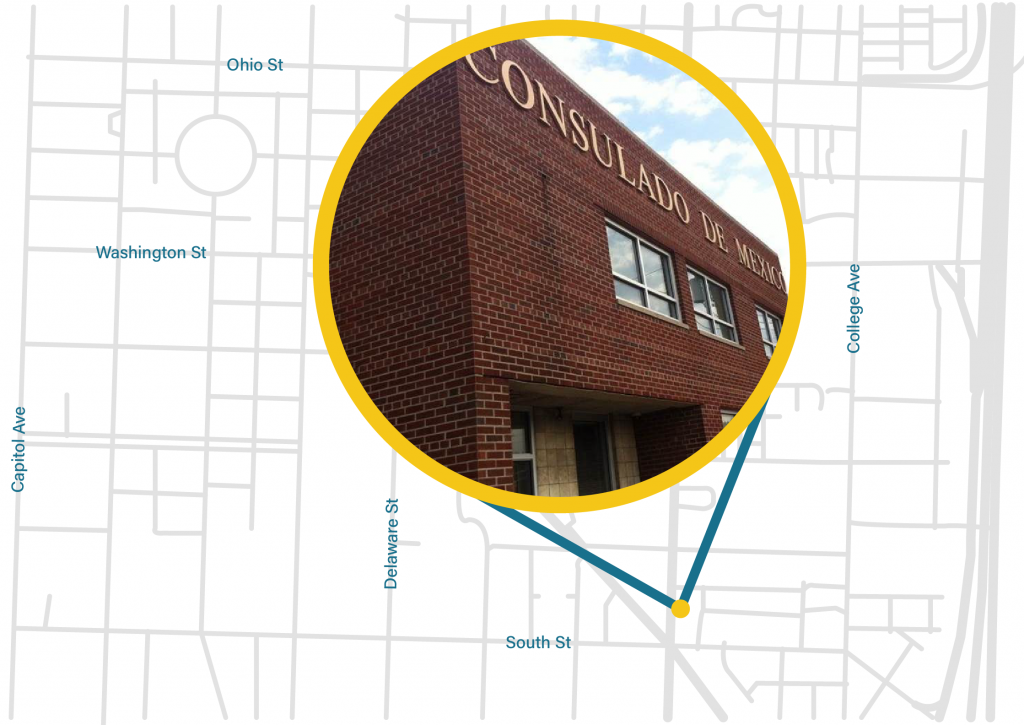
In October 2010, the consulate purchased a 12,000-square-foot building in Fletcher Place at 331 S. East Street for $790,000. The purchase of this larger building was symbolic of the long-term commitment to Indianapolis and the aspiration to expand its services. With the continued growth of the Mexican population in Indianapolis, this decision proved visionary. By 2020, the population had expanded to 129,286, an increase of 94 percent since 1990.
What does the Consulate do?
In the United States, the Mexican government maintains the largest consular network in the world. The Mexican Embassy in Washington, D.C., serves as the main location for the country’s diplomatic presence. It provides the center for high-level government interactions between Mexico and the U.S. Mexico’s 50 consulates located across the U.S. operate as lesser branches. Consulates are situated in areas of the U.S. where high concentrations of Mexican citizens reside. Texas and California have the largest number of consulates. The Mexican Consulate of Chicago is closest to the one in Indianapolis.
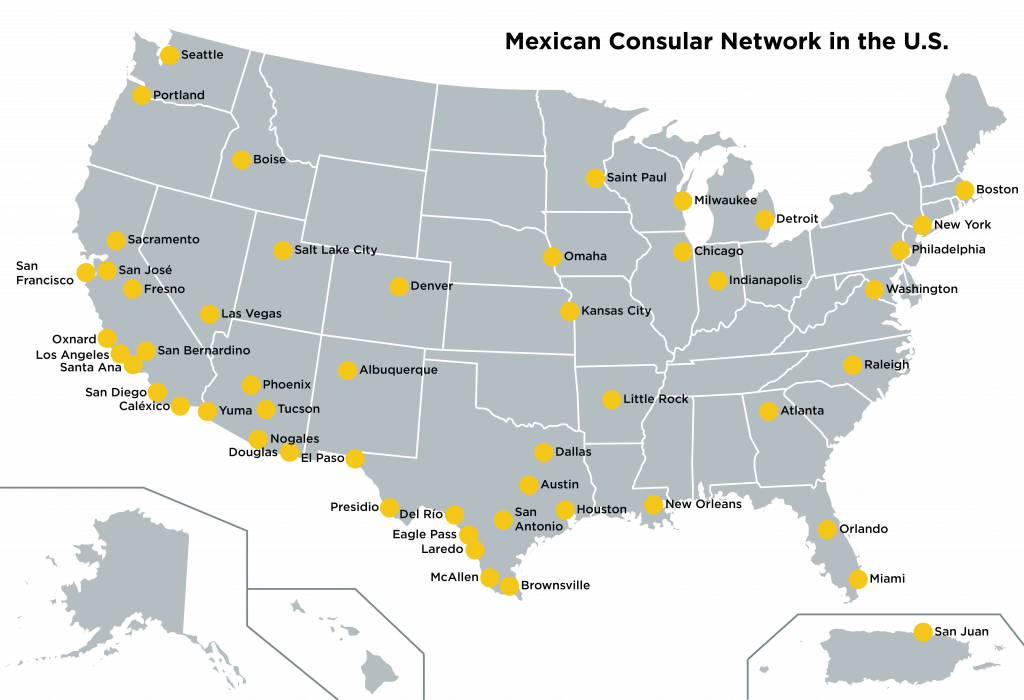
As of June 1, 2022, the Mexican Consulate of Indianapolis served approximately two-thirds of Indiana and Ohio and all of Kentucky. Over 327,000 Mexican nationals within these boundaries receive its services. Before this date, certain counties in southern Illinois were included. They now fall under the responsibility of the Chicago consulate. The Mexican Ministry of Foreign Affairs redrew this map to optimize the efficiency of consular services and the number of people served, to reduce the distance that Mexicans need to travel for these services, and to strengthen dialogue between state and local authorities and the Mexican community.
Consulate Organization
The head consul and a deputy consul, who are Mexican citizens, lead the consulate. They are permanent members of the Mexican Foreign Service who represent the country abroad.
The consulate has four departments:
- Administration Department
- Documentation Department
- Community Affairs Department
- Protection and Legal Department
Each department plays an important role in consular functions.
Head Consul
The Head Consul works to ensure that Mexican nationals and their interests are protected and promoted throughout all consular departments. Head Consuls monitor and inform the Mexican government about U.S. state government policies of their jurisdictions that will impact Mexicans living in the region. They also communicate with appointed U.S. government officials about Mexican government policy.
The Mexican Secretariat of Foreign Affairs nominates consuls. The usual diplomatic tour of duty for a consul lasts between two to five years.
Consuls of Mexico in Indianapolis:
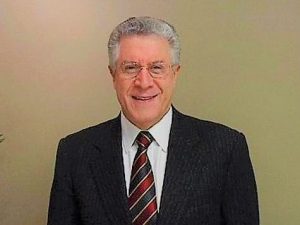
Sergio Aguilera Beteta 2002-2007 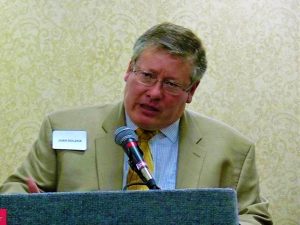
Juan Manuel. Solana Morales 2007-2013 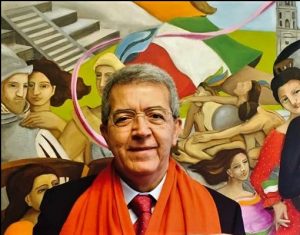
Javier Abud Osuna 2015-2017 
Luis Enrique Franco DÍaz de León 2017-2022 
Leticia Maki Teramoto Sakamoto 2022- Current 
Image Credit: Top row and middle left – Mexican Consulate of Indianapolis; Middle Right: Robert Scheer, IndyStar; Bottom: Jenna Watson, IndyStar
Deputy Consul
The Deputy Consul supports the Head Consul by supervising the work of the consulate within Indiana and its surrounding states. They oversee support services for area residents, help to develop business between Mexican and U.S. companies, and promote Mexican culture.
Administrative Department
The Administrative Department assures the proper functioning of the consulate, including:
- Preparation of the annual budget
- Oversight of financing of all consular departments
- Oversight of equipment and supplies
- Coordination of the annual calendar of the “Mobile Consulate” that travels throughout the region providing consular services such as citizen documentation
Documentation Department
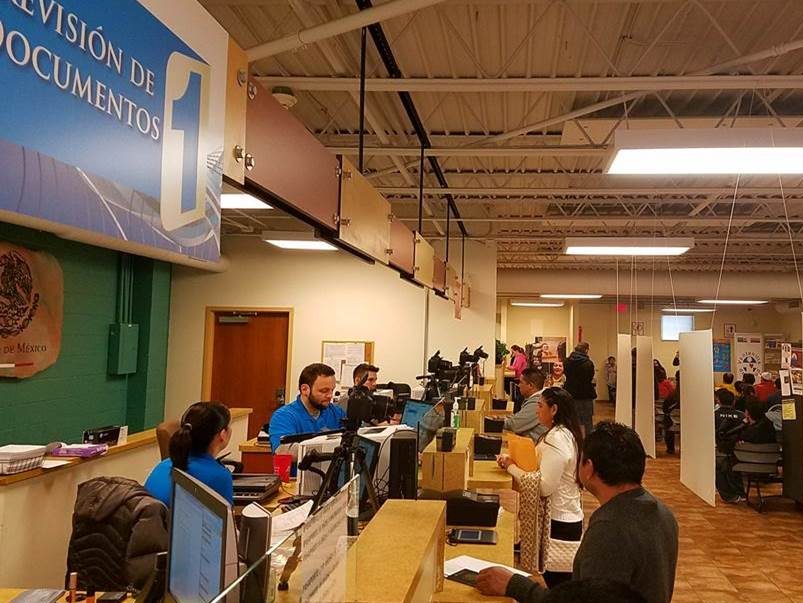
The Documentation Department carries out the fundamental and crucial function of providing identity documents, including:
- Passports
- Consular ID
- Voting cards
- Birth certificates
- Marriage licenses
- Death certificates
- Military booklets
- Powers of Attorney
Community Affairs Department
The Community Affairs Department promotes and provides the education, health, and financial advisory programs that the consulate offers the Mexican/Latino community. It also carries out cultural activities, sports, and civic celebrations.
The department offers mobile consulate services as well as a series of programs called Community Windows, designed to improve the life circumstances of Mexican nationals and members of other Latino communities while they live in the U.S.
Mobile Consulate Services
In coordination with other consular departments, Community Affairs participates in the activities of the Mobile Consulate, providing access to its comprehensive, health, financial, and educational services in outlying areas of the consulate’s geographic area.
Health Window
In partnership with Eskenazi Health, the department offers:
- Diagnostic testing and informative sessions on mental health, smoking, and nutrition
- Mobile medical clinics
- Health fairs
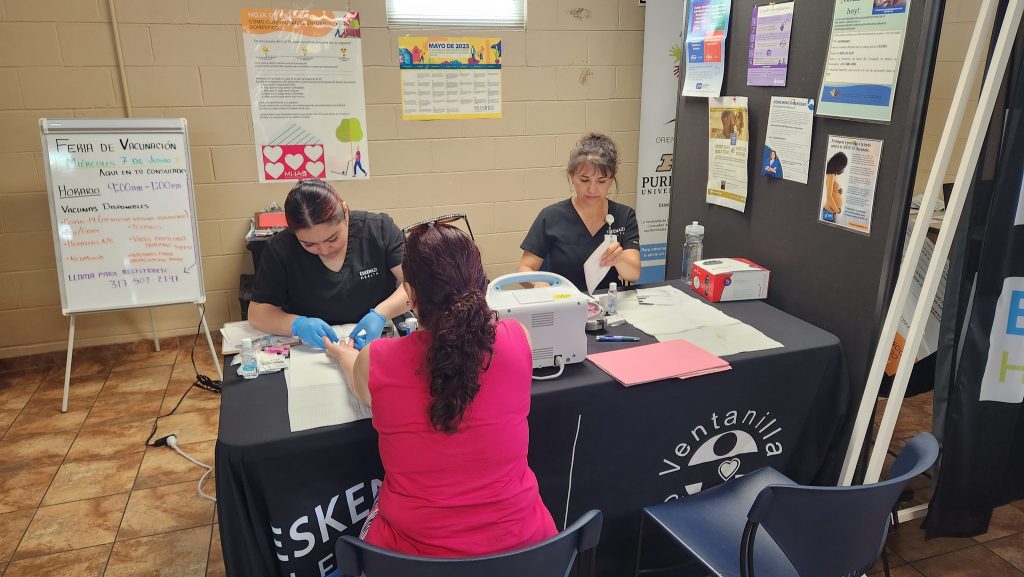
Financial Advisory Window
- Guidance and advice on bank and debit accounts
- Help with loan applications and debt consolidation
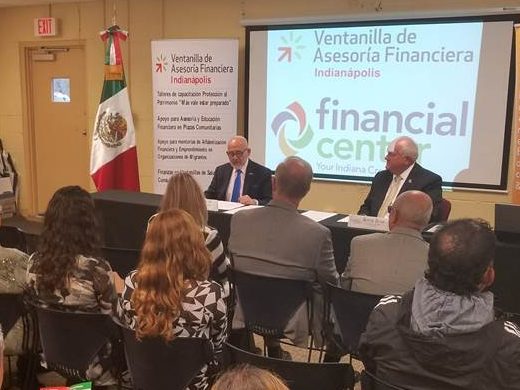
Credit: Mexican Consulate of Indianapolis
Comprehensive Care Window for Women
The department works with the Julian Center, Indiana’s largest and most comprehensive domestic crisis center to:
- Detect cases of domestic violence
- Provide health services, education, and legal guidance for women experiencing domestic violence
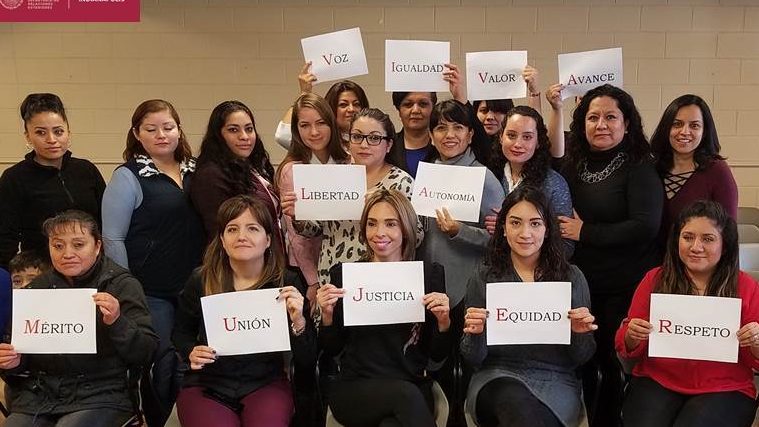
Education Orientation Window
The department partners with the Learning Network of Clinton County (LNCC) to:
- Promote access to high school and college opportunities offered through Mexican institutions
- Provide English classes, scholarships, and High School Equivalency Test (HiSET)
The department also partners with local universities like Ivy Tech Community College to:
- Offer vocational guidance
- Provide information on curricula and scholarships
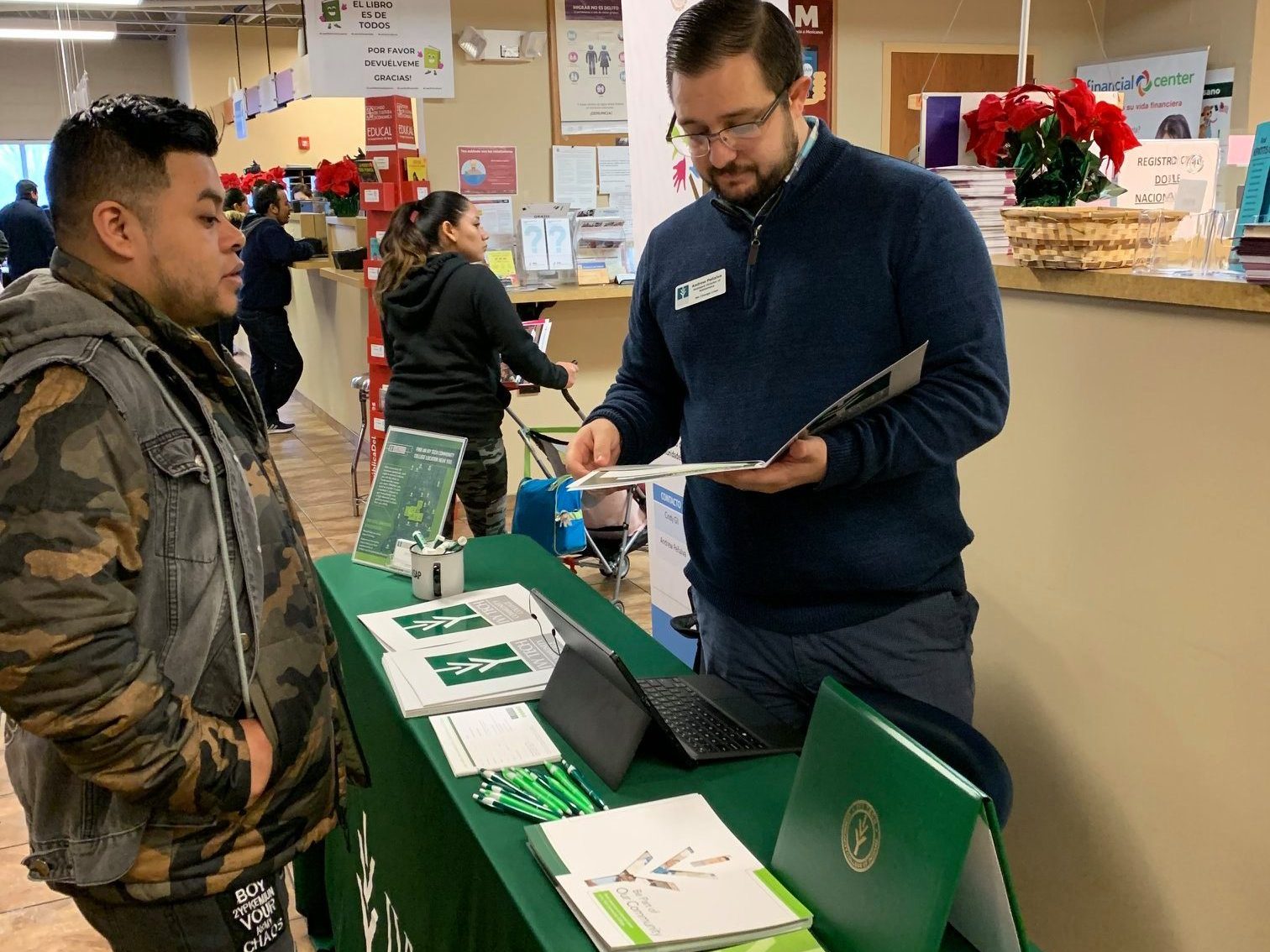
Promotion of Mexican Culture in Indianapolis
The Department of Community Affairs promotes Mexico’s culture, history, traditions, and identity through participation in festivals promoting ethnic and cultural diversity.
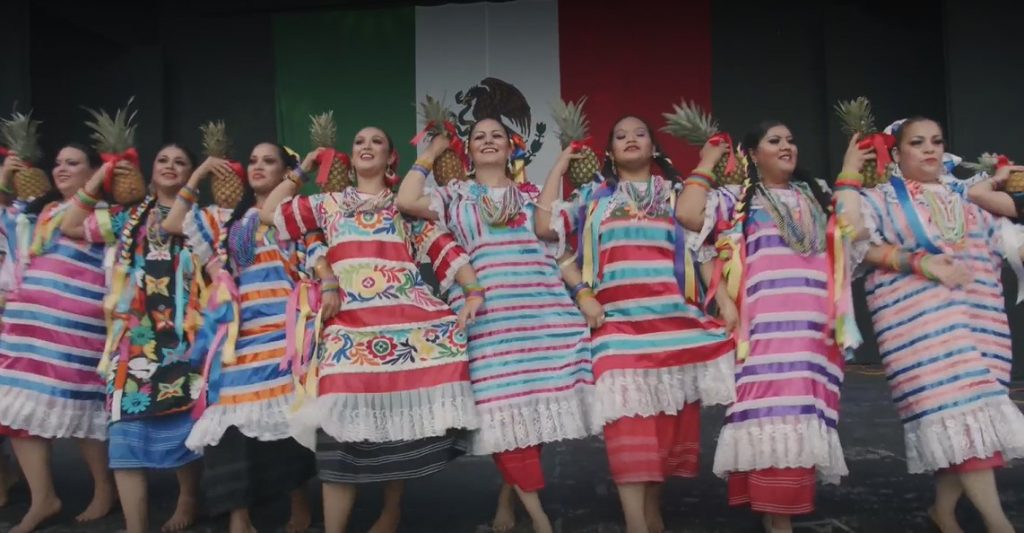
Its programming includes:
- Celebrations:
- Mexican Independence Day
- Day of the Dead with Eiteljorg Museum of American Indians and Western Art
- Cinco de Mayo
- Diverse exhibitions
- Mexican culinary demonstrations
- Festival de Cine Contemporaneo Mexicano, hosted at the Indianapolis Public Library
Protection and Legal Department
The Protection and Legal Department works to protect the rights of Mexican nationals in every area in which they might interact with local, state, and U.S. federal authorities.
Immigration
The department provides advice and assistance in cases of alleged immigration violations.
Criminal
Mexican nationals have the right to consular notification if arrested or detained. The department then provides assistance to them to ensure that they receive adequate representation within the law.
Labor
The department provides guidance in labor cases that involve unpaid salaries and work-related injuries and in civil lawsuits.
Human Rights
The department assists in cases involving human rights violations and works to assist victims of human trafficking.
Administrative
The department assists in locating Mexican nationals, recuperating lost or misplaced funds, identifying and transferring human remains to Mexico, and repatriating ill people.
Family
The department intervenes in cases that involve children in the custody of U.S. authorities within its jurisdiction, and it helps with child support petitions and with child repatriation and family unifications.
The Mexico-Indiana Economic Relationship
The Mexican Consulate of Indianapolis actively participates with state officials and private enterprises in economic affairs, which has led to strong growth in trade between Mexico and Indiana in the past 10 years, with an average annual growth of 4.8 percent.
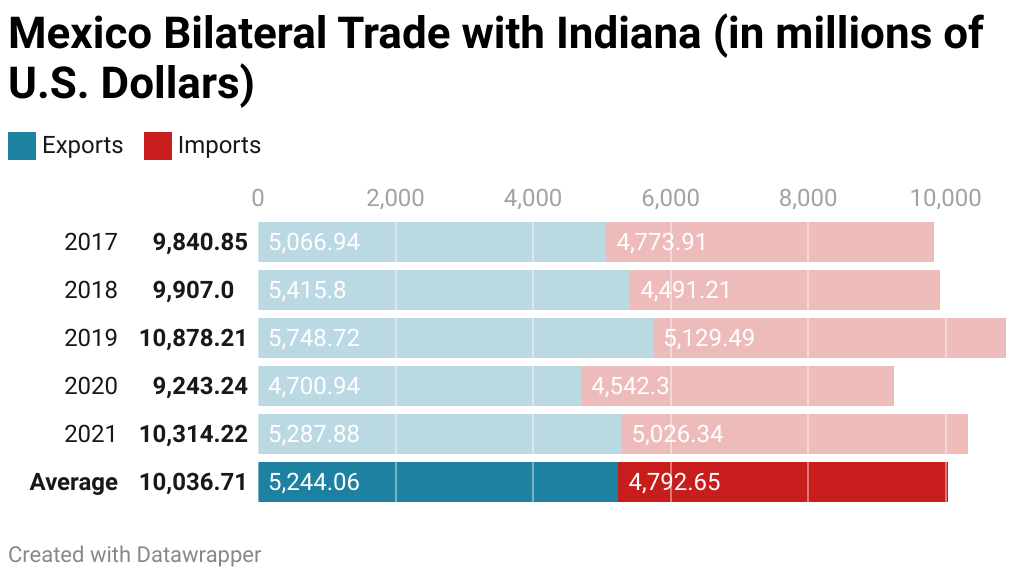
In 2020, Indiana imports of Mexican products accounted for $4.6 billion, and Indiana exports to Mexico accounted for $4.7 billion, reaching a total trade of $9.3 billion. Indiana ranked 16th among Mexico’s most important trade partners among U.S. states.
In 2021, Mexico was one of the Indianapolis MSA’s top export partners. It ranked fourth after Canada, Germany, and China, with $1 billion in exported goods.

Consulate Impact in Indianapolis
Since it was established in 2002, the Mexican Consulate of Indianapolis has worked with Mexican authorities, local authorities, and numerous partners to build lasting relationships that have improved the lives of both the Mexican and Hispanic/Latino communities across its geographical boundaries.
In its 20-plus years of existence, the consulate has worked to streamline its document-delivery service. Through a simplified process that has resulted in an average wait time of less than one hour, the consulate has issued more than 205,000 passports and 247,000 Mexican government ID cards. In 2016, the consulate received an award recognizing its excellence in providing documentation services.
The Community Affairs Department’s community windows have also proven successful. The consulate has provided financial advice to more than 17,000 people since October 2017. Through its diagnostic testing services, mobile clinics, and onsite health fairs, the consulate, in partnership with Eskenazi Health, has provided basic medical services to nearly 97,000 people.
Since its establishment in 2019, the consulate’s “Education Window” has benefited over 12,000 people, either online or in face-to-face activities. More than 62,000 books have been distributed to school districts in Indiana, Ohio, and Kentucky through its free textbook program. Almost 300 students have benefited from the consulate’s education offerings—earning high school, bachelor’s, and master’s degrees. The number of educational institutions that provide Institute of Mexicans Abroad (IME) scholarships has tripled.
Though less quantifiable, the Community Affairs Department’s exhibitions, culinary events, festivals, and observances of Mexican holidays celebrate the nation’s culture with everyone who lives in the Indianapolis area. They not only encourage Mexicans to maintain their culture of origin but also provide an opportunity to break down prejudices, enhance multiculturalism, and strengthen community ties.





